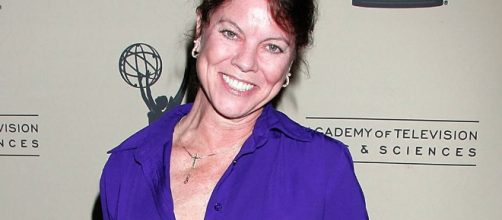We lost another beautiful, funny and creative actress last week. Erin Moran died at the age of 56. Reports and rumors about her death run a wide gamut. On one side, she died in her mother-in-law's trailer from complications of stage-four cancer. On the other she died from a heroin overdose. At this point in time, no official reports or statements have been released by those close to the actress. Nonetheless, reports detailing Erin Moran's last years were not tales of the happy go lucky young woman she portrayed so honestly in her work as an actor.
Chances are her bright wide-eyed smile had darkened under the pressures of not being able to find, maintain, and enhance her talent and share her acting gifts with the rest of the world.
Not a new story
This is not a new story. In fact, we have heard versions on this legendary tale over and over again. Some are at the highest levels of fame. While others are in our own backyards. When will we turn into the hurricane force winds these stories unleash and ask why? Why are our bright, talented and complex actors, brothers, sisters, and loved-ones succumbing to the weight of alcoholism and drug-addiction? Not just once or twice every year or two. At times the reports of these deaths are reported every week.
A list of some of America's most talented individuals who have died after long histories of alcoholism and drug addiction in the past year alone would be staggering. What are we doing wrong? Now that Erin Moran is gone, it is understandable that those who loved and cared for her express their anguish and confusion over her death. It is not one person's fault for sure. In fact, fault is not the issue.
America's popular form of recovery is Alcoholics Anonymous
Nonetheless, here is where we may want to turn a discriminating eye toward and ask a hard question. How can we do better? Obviously, some age-old remedies are not working. Alcoholics Anonymous (A.A.) for example, one of America's favorite forms of recovery for not just alcoholism but for almost anything and everything that can be addictive.
Has an increasingly discouraging track record. Nevertheless, the Twelve Steps have been adapted to help those struggling with addictions from food, gambling, narcotics, to even loving and caring for alcoholics. Some joke and say we need a Twelve Step Program for those who are addicted to Twelve Step Programs.
Another argument is, it is too soon to cast a wide net of what went wrong. A.A. knows how to defend itself and deflect any criticism that is hurled their way. It works if you work it. The person did not show-up. So on and on, there are hundreds of these bullet proof answers hardcore members of A.A. are almost too happy to provide. In other words, it is not A.A. that failed, it is the person.
A.A. gets to state this for the simple reason that many claim that A.A.'s Twelve Steps saved their life. Who can argue with this?
The anonymity parachute
Let us not get ahead of ourselves. There is nothing linking Erin Moran's life or death with A.A. How could there be? A.A., after all, is anonymous. The only sad empty truth we have is; after becoming horribly emotionally lost a bright talented woman died. Chances are her death may have been related to the addictions she reportedly struggled with over much of her adult life.
A woman we watched grow-up before our eyes. One we neglected as she slipped out of reach. Not on purpose. That is for sure. Maybe, however, for the simple reason we believed what A.A.
has been spoon feeding us for the better part of half a century. Addicts and alcoholics can recover from drug addiction and alcoholism if they will just go to A.A. How much longer are we as a nation going to buy into this ill-fated line of reasoning? Truth is Erin Moran may have never darkened the door of a Twelve Step meeting. That is not the point at hand. What is being asked has to do with veracity. The reliability that peace, happiness, and sobriety is a simple Twelve Steps away for anyone.

